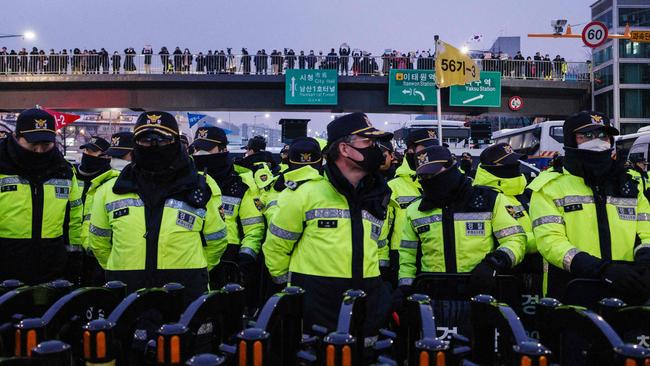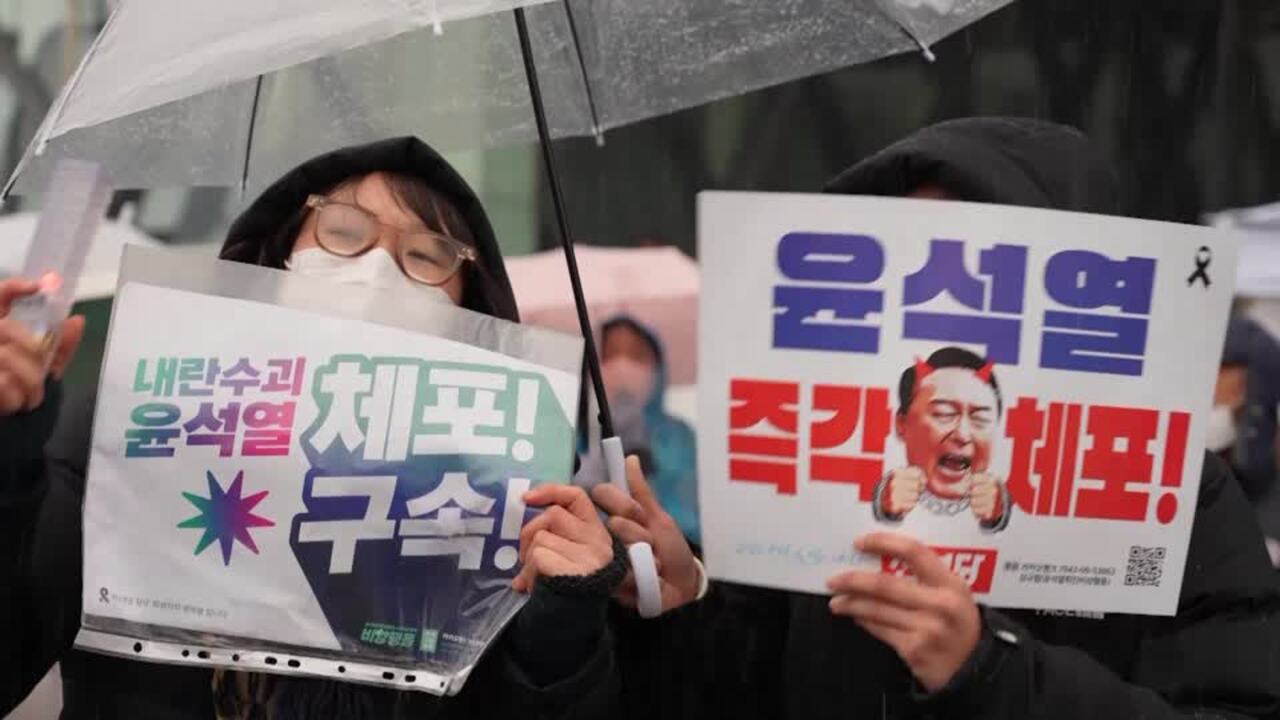South Korea police seek to extend arrest deadline for president Yoon Suk Yeol
Times is running out for investigators to arrest Yoon Suk Yeol with his arrest warrant due to expire at midnight, as the embattled leader remains holed up in his residence.

South Korean investigators trying to arrest suspended President Yoon Suk Yeol have asked for an extension to the warrant that expires on Monday, as the embattled leader remains holed up in his residence.
Mr Yoon, a former prosecutor, has defiantly refused questioning three times over his bungled martial law decree before a failed arrest attempt on Friday saw hundreds of protective guards block investigators trying to detain him in a tense, six hour long standoff.
Investigators from the Corruption Investigation Office (CIO) told reporters they will ask for an extension to the arrest warrant, which is due to expire at midnight local time (2am Tuesday AEDT).
“The validity of the warrant expires today. We plan to request an extension from the court today,” said Lee Jae-seung, deputy director of the Corruption Investigation Office (CIO), in a briefing to reporters.
He added they had asked for the police’s help to detain Mr Yoon because of the difficulties investigators had faced, and would consult them on the timing of the warrant extension. Police have yet to accept the request.
A police official told Yonhap news agency the request was being considered.
It came after a Seoul court on Sunday dismissed an injunction filed by Mr Yoon’s lawyers seeking to invalidate the warrant, issued over his failed martial law bid.
Mr Yoon plunged the country into political chaos last month with this failed martial law declaration and has remained out of public sight in the presidential residence, surrounded by hundreds of loyal security officers, with thousands of supporters camped outside.
If Monday’s deadline passes without Mr Yoon’s arrest, a new warrant would allow police and investigators to detain him longer than the 48 hours allowed under the current court order, according to The Korea Times.

The political crisis is engulfing South Korea as US Secretary of State Antony Blinken arrived for talks with his counterpart Cho Tae-yul.
Mr Blinken will seek to encourage continuity with the policies, but not tactics, of the impeached president, who was once a favourite of the Biden administration.
He arrived in the snow-covered capital on Sunday, on what will likely be his final trip as the top US diplomat before President-elect Donald Trump’s inauguration.
The US Secretary of State is highlighting President Joe Biden’s efforts to build alliances and will head afterwards to Tokyo, making it crucial in the eyes of his advisers not to snub South Korea, which has a fraught and often competitive relationship with Japan, also home to thousands of American troops.
Mr Yoon had once been a darling of the Biden administration with his bold moves to turn the page on friction with Japan and his eye on a greater role for South Korea on global issues.
Mr Yoon joined Mr Biden for a landmark three-way summit with Japan’s prime minister and – months before declaring martial law – was picked to lead a global democracy summit, a signature initiative for the outgoing US administration.
He also memorably charmed his hosts on a state visit by belting out “American Pie” at a White House dinner.
Mr Blinken may face some criticism from the South Korean left for the visit but should be able to navigate the political crisis, said Sydney Seiler, a former US intelligence officer focused on Korea now at the Center for Strategic and International Studies.
Mr Blinken has a high enough profile to be above the fray, and can keep the focus on challenges such as China and North Korea, he said.
“Blinken can dodge a lot of these domestic South Korean landmines relatively easily and contextualise it not as trying to help the ruling party or artificially create a sense of normalcy where it otherwise isn’t,” Mr Seiler said.
In a statement, the State Department did not directly mention the political crisis but said Mr Blinken would seek to preserve trilateral co-operation with Japan, which has included enhanced intelligence sharing on North Korea.
With AFP



To join the conversation, please log in. Don't have an account? Register
Join the conversation, you are commenting as Logout